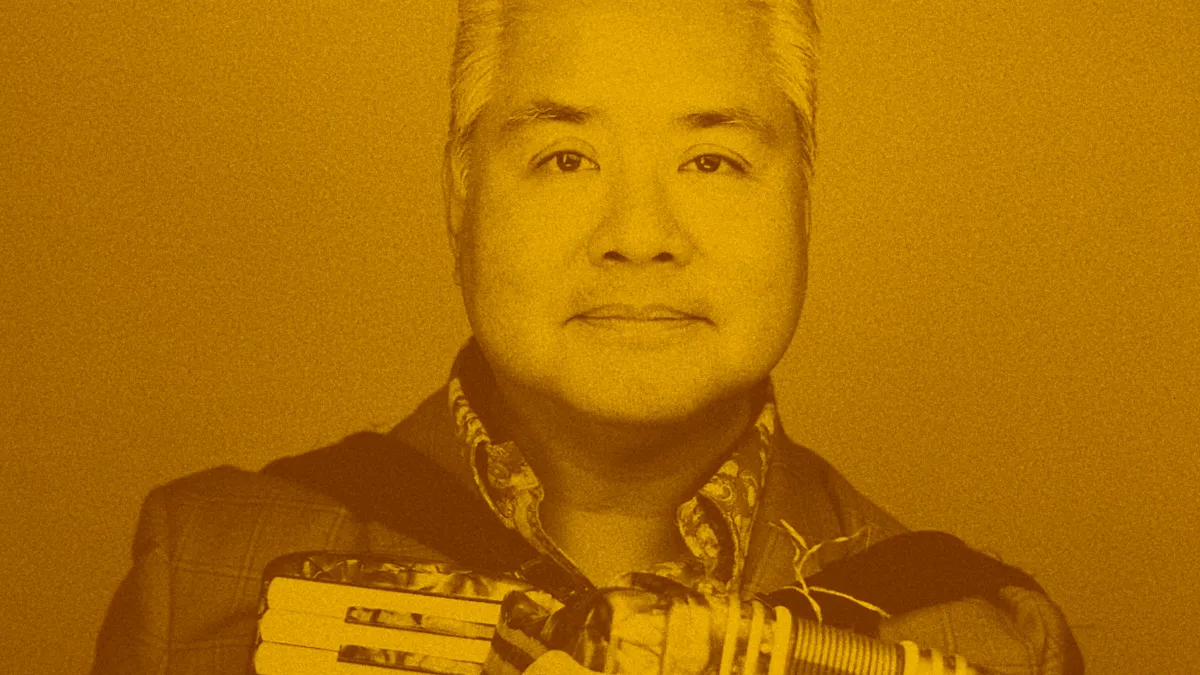Episode 134 of The Informed Life podcast features a conversation with Joey deVilla, AKA The Accordion Guy. Joey describes himself as “an experienced, engaging, accordion-playing, golden-voiced developer advocate looking for a new role.” He’s had a long career in tech and writes about his experiences in two long-running blogs, The Adventures of Accordion Guy in the 21st Century and Global Nerdy.
Recently, Joey became one of the many people in tech who’s been laid off. That was the subject of our conversation.
This isn’t a common subject for my podcast, but I know many people who’ve lost their jobs and are looking for their next gig. They’d benefit from listening to Joey. He published a series of posts on Global Nerdy about this most recent layoff experience (his fifth) and his recommendations can help anyone navigating this situation.
There’s a stigma around layoffs; it’s often considered a taboo subject. Joey stressed the importance of discussing the situation openly. This not only lets people know you’re available, but can also help with the emotional fallout. It also helps de-stigmatize the situation:
by letting people know that you’re available, you’re just increasing the odds that you will be found by somebody who is looking for someone at a certain point. And I think the other thing is, I think it also surprises people into also talking about their experiences. There’s a kind of stigma, actually, where people are going, “Oh God, if I tell people, if I tell people I got laid off, I’m broadcasting that I have somehow failed.”
And at the same time, also there are people who have… I have received some emails and texts and messages from people who are going, “When I read your articles, I didn’t know whether to contact you or not, and I decided to do it because I didn’t want to bother you,” or it felt weird for some reason. And because it is a regular occupational hazard, probably not just in our industry but in the 21st-century working world, we probably should de-stigmatize this sort of thing and just normalize it: “Hey, you know what? My company let me go. Here’s my experience. I’m looking for the next thing.”
Joey maintained a professional demeanor throughout the process. This was most evident in the meeting where he was laid off. On the other side were an HR person and his manager’s manager, both of whom were dialing in from California, where it was 6:30 in the morning. Joey acknowledged that none of them liked being in the situation, and made things easier.
Joey also recommended stepping away from the desk to move the body and reconnect with the world. This tactic has served me well in all sorts of circumstances. But when dealing with a stressful situation, such as a layoff, taking care of your body is especially important. Going outside (weather permitting) helps.
When it comes to moving forward, Joey also had recommendations. He emphasized the importance of having an active network. Joey is an extrovert, which makes this easier. But networks are especially important in turbulent markets. It helps if these networks are comprised of people from diverse backgrounds:
I like to say life is a team sport… Generally, one of the reasons is that a network exposes what I like to think of as your opportunity surface area. The people you know may be exposed to other things just by virtue of being different people that you might not be exposed to, might hear of things that you might not hear about, and vice versa.
You will know and hear about things that people in your network haven’t heard about, and if you work collectively, synergistically, you can all lift each other up. And that’s why we form communities.
Joey also suggested learning and sharing publicly, both for personal growth and to become more discoverable by potential employers:
if you like using social media, even if you have nothing to write about yourself, I would say just at least say, “Hey, look at this thing I found,” or “Here’s this article I found interesting.” Or “Here’s a diagram that I think is relevant.” Start posting that regularly. I would especially say that on LinkedIn because what you’re doing is you’re generating signal that recruiters and hiring people who are paying for the $10,000-a-month version of LinkedIn, with all the search tools, will find.
… if you decide to upskill or learn, learn in public, share what you’re learning. Once again, it helps other people. It actually helps you learn, and it also generates more of that very valuable signal that will help you get found and help you land either your next gig or your next customer.
Ultimately, it’s people that matter. You help them, they help you. Large companies are especially impersonal. Connecting at a human level is essential to any career, but seldom more so than when there are mass layoffs.
These are difficult times for many. If you’ve been laid off, I wish you success in finding your next opportunity. I hope this conversation helps.
